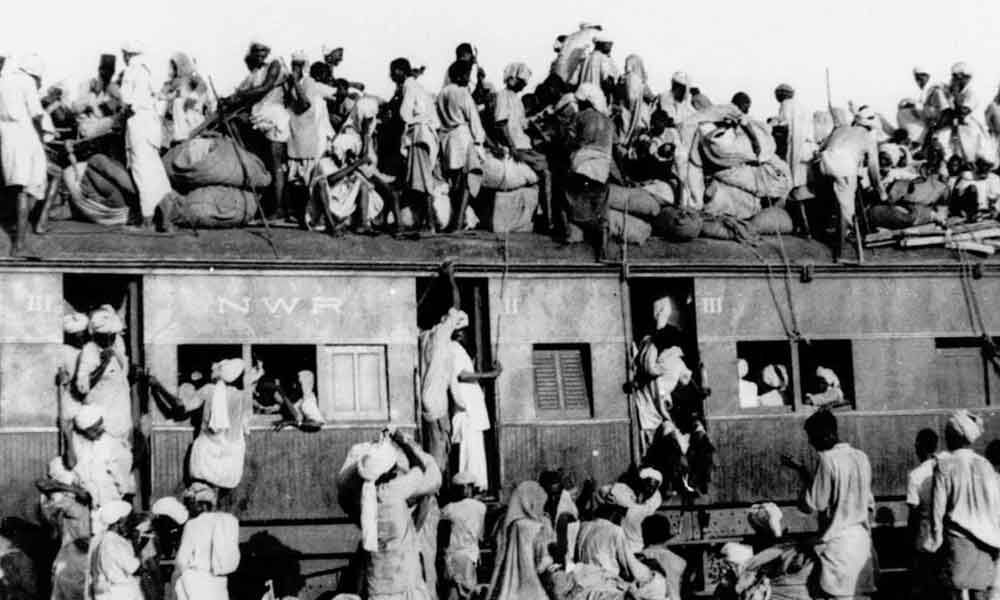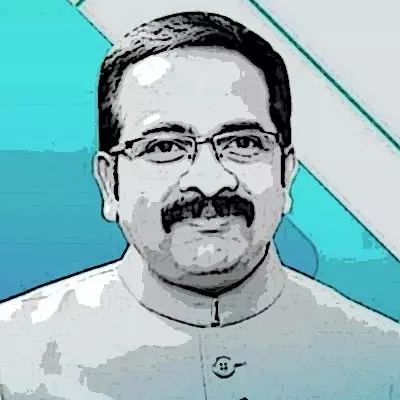Legacy of 'fake-secularism' in India

Legacy of ‘fake-secularism’ in India
Mamata Banerjee, the other day, has publicly sought 'Muslim vote' in a public rally, and tutored them not to divide their vote between other infamous 'secular-parties' who are contesting assembly elections in West Bengal.
She minced no words; she is referring to Congress and AIMIM. Her direct plea to the Muslim electorate is, 'TMC is more secular than Congress and the MIM'. All these three parties which brazenly appease and suck-up openly for Muslim-vote, are termed as 'secular-parties' in the popular Indian dictionary.
The definition of 'Secularism' has to come this shameful state in India. Many self-appointed watch dogs of 'secularism', continue to fool themselves and general public by defending this mark of secularism.
Imagine the degree of defective-mindset of the 'educated- illiterates' in this country. In fact, this bunch of scholarly-elites across the country callously label BJP as 'non-secular party', the reverse of what they understand as 'secular'.
It is below juvenile to educate these people to stop and reflect, on the scale of disservice they are doing to this nation, with their fleeting ignorance and blind ideological leaning.
India has been suffering the onslaught of 'fake-secularism' since amendments to article 290 of the Indian constitution in 1956 by Jawaharlal Nehru, and insertion of the word 'secular' during emergency period by his daughter Indira Gandhi in 1975.
Both these episodes are pre-meditated and deviant political plots to keep Indian voters forever divided, using 'religion-card' by the power-hungry Nehru family.
Below are some eye-openers for 'fake-seculars':
Nehru insults dr ambedkar
In retrospect, what is shocking is the brazenness in pre-empting this political conspiracy by Jawaharlal Nehru in bringing-in this amendment to the constitution, just 5 years after it was adopted.
'Secularism' was not considered as an important word to be explicitly spelt out in the constitution by the 299-member constituent assembly and Dr. Baba Saheb Ambedkar. During the process of constitution design, in 11 sessions held over 3 years of confabulations, members of the constituent assembly have not found 'secularism' appropriate to be adopted into the constitution.
However, it is evident that Jawaharlal Nehru felt an urgent need for a political instrument to transfer power to his family successor, so he acted methodically with no remorse.
Any national leader from that period with a minimal knowledge of the inherent tolerance of 'Hindustan' [as India originally was recognized before British invasion], would not dare insult it by highlighting the need for 'secularism' in the constitution.
Nehru's cruel political timing
As the first Prime Minister of independent India, Jawaharlal Nehru has clearly faltered and indulged in heartless, frivolous power-politics since 1945. After achieving freedom from 700 years of foreign oppression and slavery, Nehru should have envisioned large goals and took massive governance initiatives to lead India towards reclaiming the lost glory and supremacy as a great civilization. Instead, he indulged in petty power politics.
It's heartless and inhuman that the first prime minister of India has thought of making 'religion' a political instrument for power, in the backdrop of a freshly divided nation and unprecedented bloodbath during partition.
Jawaharlal Nehru successfully brought 'religion' as the basis for his politics and governance, through his hurried initiative of bringing-in Hindu Code Act in 1951, and passing 'Religious personal laws by 1956.
Despite being an active participant of unfair and bloody partition of this great nation on the basis of 'religion', how could Jawaharlal Nehru bring 'Religion' back into play, in India? What was his motive behind passing 'Religious personal laws' even before the memories of bloody partition faded?
I strongly believe, it is Jawaharlal Nehru's political learnings of 'divide and rule' from British, which has led him to divide India on the basis of 'religion' all over again after 1956. In fact, his petty 'divisive-political-plot' worked successfully, to keep four generations of his family dynasty in power, for around 60 years.
Fake-secularism since 1956
'Fake-Secularism' was deployed by Nehru and his clan successfully since 1956. Generation after generation, Congress party and its leaders could fool the majority in India that their 'Secularism' is a great ideal and is central to the 'Idea of India'. In real, 'fake-secularism' was the 'Idea of Congress' to continue in power.
Real secularism in a parliamentary democracy is about separating religion from governance. It is not about considering religion as a primary identity of a national, to deliver governance.
Law and justice system is an important organ of governance in a democracy. How does 'religious personal laws' passed in 1956, and are currently still in force, justify real 'Secularism'? Does it not clearly violate the basic tenet of state separating religion from governance? Does it not amount to state recognizing religious identity and allowing each religion to have their own laws?
Is this 'real-secularism' or 'fake-secularism'?
Which other secular democracies in the world have religious personal laws? the answer is - none.
The unprecedented haste of Indira Gandhi in imposing 'Emergency' on one hand, and inserting word 'Secular' in the preamble of the Constitution, with no discussion or debate in the parliament, exposes the deceptive and divisive political conspiracy.
Congress party and its scions have developed a proprietary product - 'fake-secularism' and used it as a divisive electoral instrument for decades. In fact, they have also extended this product as 'franchise' to all other regional family political enterprises across the nation, to use it liberally.
What Mamata Banerjee is doing in West Bengal is to replicate decades of Congress divisive tactics successfully, by using 'fake-secularism'. So are all regional parties across India. Its horrendous that, this template has become acceptable and executable in Indian electoral eco-system for this long.
There are innumerable instances and examples to explain how this phoney brand of 'fake-secularism' has been used on Indian electorate for seven decades.
It is high time, that voters see through these evil designs of family run political enterprises, to divide and rule India.
(The author is the chief spokesperson of the BJP Telangana State, an organisational strategist & a leadership coach)








